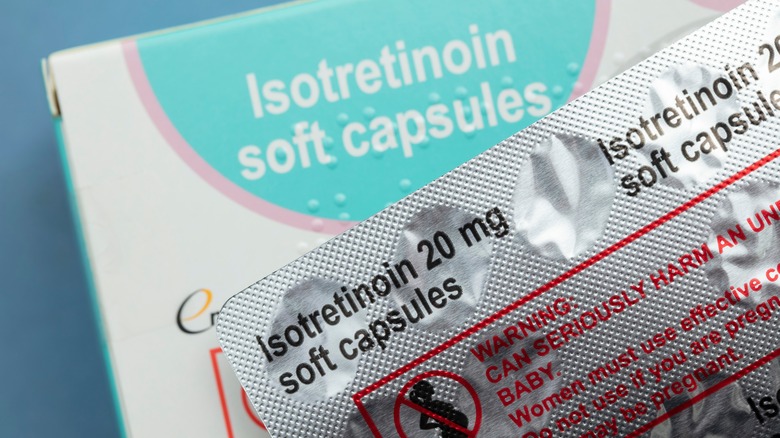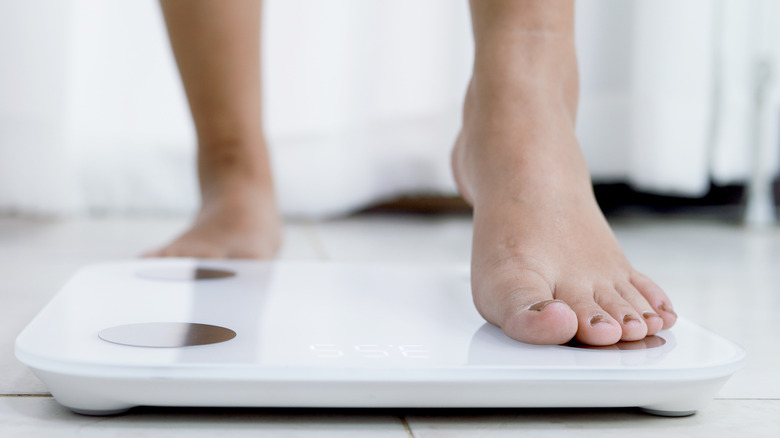Simple Tips To Keep Your Liver Healthy While Taking Accutane
Everyone dreams of a magic pill that can solve life's problems. Unfortunately for most of us, however, a problem-solving magic pill is just not in the cards ... unless severe acne is what plagues you. In which case, they do — in fact — have a magic pill for that!
Nearly 50 million Americans struggle with varying degrees of acne, a skin condition that occurs when hair follicles become blocked with oil and dead skin cells (per American Academy of Dermatology Association). Acne is typically treated with topical medications, oral medications, or a combination of both, all of which can be prescribed by your dermatologist. But when all of these lotions and potions prove to be no match for your stubborn acne, it's time to pull out the big guns.
Isotretinoin, commonly referred to as Accutane (even though that brand was discontinued), is an oral medication that may be used to treat severe acne when other methods of treatment fail. While Accutane is wildly effective — completely eliminating acne in 90% of people who use it, per Science Daily — it can come with some serious side effects, including liver damage .
How Accutane impacts the liver
While isotretinoin can lend to more milder side effects like dry, cracked skin, dry mouth, dry eyes, hair loss, sensitivity to the sun, and stomach pain, it also has the potential to cause some serious damage in the body — particularly to the liver (per GoodRx).
In 15% of people who take Accutane, the drug causes some sort of abnormality that can be detected by a liver function test (per Medical News Today). While medical professionals have yet to identify a clear-cut reason as to why this happens, isotretinoin can increase the production of serum aminotransferase, an enzyme that is commonly used as an indicator of liver damage.
Only in rare cases does Accutane cause any damage to the liver, and more often than not abnormal liver test results return to normal once the drug is no longer being taken. However, as a precaution, patients must agree to undergo monitoring through the duration of their treatment to ensure that the liver is not being negatively affected.
How you can protect your liver
While your doctor will keep an eye on your liver health throughout your treatment, there are a few things you can do at home to make sure your hepatic system is in fighting shape. The American Liver Foundation points out that a healthy liver starts with maintaining a healthy weight. Because being overweight increases the risk of non-alcoholic fatty liver disease, taking steps to maintain a weight within recommended range can help to keep your liver healthy in the face of isotretinoin treatment. By avoiding saturated fats, refined carbohydrates, and high-calorie meals that are harder for the liver to process and opting instead for fiber-rich foods, white meat, low-fat dairy products, and healthy fats like nuts, seeds, and fish, you can take the workload off the liver and support its healthy functioning.
While taking Accutane, you will also want to drink alcohol only in moderation and avoid illicit drugs. Because hepatitis – a virus characterized by inflammation in the liver — can be contracted through the exchange of blood and sexual fluids, abstaining from unprotected sex and avoiding sharing personal hygiene products like razors is a must. In the event that you come in contact with someone else's blood while receiving treatment, it's essential that you check in with your doctor immediately.



